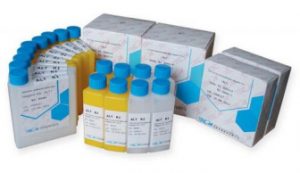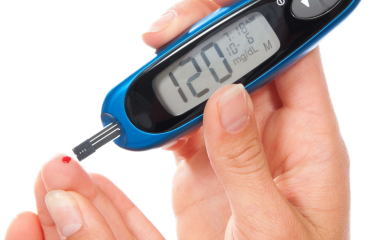Laboratory Reagents
Before getting into what reagents actually are it is important to understand that a reagent is different from a reactant. Reagents and reactants are often confused with each other. In a reaction a reactant is a substrate whereas a reagent acts as the catalyst that binds to something to cause a reaction. A reagent can be an organic or inorganic compound that are used for analytical purposes in chemical analysis, physical testing or chemical reaction testing.
A reagent is used to find out if or not a specific chemical substance is present by causing a reaction to occur with it. Reagents are integral in triggering a chemical reaction and for this reason they are used widely in a variety of tests. Some examples of tests where we can find the application of reagents are pregnancy tests, blood glucose tests, and most COVID-19 test kits. Both the top methods of COVID-19 testing which are the antibody testing and PCR-based testing rely on reagents to successfully test for COVID-19 infections.


Other commonly used reagents include Grignard reagent, Tollens’ reagent, Fehling’s reagent, Collins reagent, and Fenton’s reagent. Reagents can be responsible for both naturally occurring chains of reactions that can happen in the body and can also be used in artificially triggered reactions. Another set of reagents are limiting reagents that stop a chemical reaction when they are used up.
As for the areas where these reagents find great use could be in lab settings for performing different tests. Collins reagent is used to convert alcohols to aldehydes and ketones. It can be useful to oxidize acid-sensitive compounds. Fenton’s reagent is used in oxidation. Fenton’s reagent catalyzes the oxidation of contaminants in water and can be used to eliminate toxic compounds, such as tetrachloroethylene.
As consumers the safety of both food and beverages is so important for us. Reagents can also be used for quality control testing and production in the food and beverage industry. Like whether it is for testing the acidity of a beverage, bacteria testing, color testing, moisture analysis, protein analysis, sodium analysis, free fatty acid analysis or the peroxide value of edible oils, reagents find its use in ensuring that the food is fit for consumption.
Reagents can also help to test for illegal drugs. Mandelin reagent kits commonly used to test for alkaloids can turn dark green if the drug amphetamine is present, and cocaine causes the color to become deep orange. Marquis reagent kits can detect the drug LSD by turning olive black and these can also test for methamphetamine and a range of other drugs.
When chemicals are considered Reagent-Grade it means that the substance is sufficiently pure to be used for physical testing, chemical analysis, or for chemical reactions that require pure chemicals. The standards required for a chemical to meet reagent-grade quality are determined by National or International Chemical Societies.
Medihouse, being the leading supplier of medical, surgical, laboratory, scientific products and services across Kerala also supply quality laboratory reagents to top diagnostic houses like Agappe Diagnostics, Biorad Laboratories, Beacon Diagnostics, Biolab Diagnostics, Standard Diagnostics among others.
For enquiries and booking orders, call 9400630000, Whatsapp – 9447771361 or send an email to MediTvm@gmail.com
Visit www.Medihouse.org for more details




